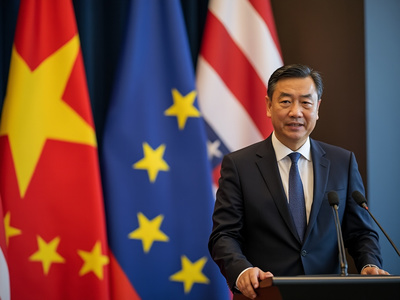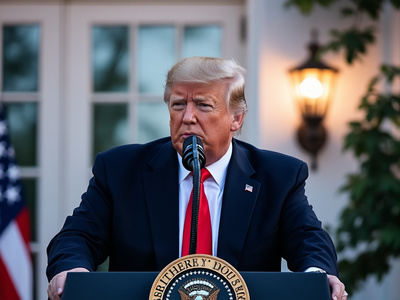
The Intersection of Extreme Right Ideologies and Climate Change Responses
Exploring how far-right movements have shifted their stance on environmental issues and migration in the context of climate discourse.
In March 2019, a terrorist attack in Christchurch, New Zealand, shocked the world when a white supremacist killed 51 Muslims in two mosques.
In a manifesto published online prior to the attack, the assailant identified himself as an "ecofascist," advocating for a harsh stance against immigration and asserting that "green nationalism is the only true nationalism." A few months later, in August 2019, another white attacker killed 21 people in El Paso, Texas, blaming Latino immigrants for environmental degradation in the United States.
These incidents exemplify the more radical manifestations of ecofascism, an ideology that intertwines environmental protection with white supremacy.
However, the relationship between far-right ideologies and climate change extends beyond these extremities.
Many proponents of this ideology outright deny global warming and champion fossil fuel interests while simultaneously employing green rhetoric to justify authoritarian policies and anti-immigrant stances.
A spokesperson for the National Rally party in France, led by Marine Le Pen, stated in 2019 that "the best ally of ecology is the border."
In their recent work, researchers Richard Hames (writing under the pseudonym Sam Moore) and Alex Roberts discuss these themes in "Batteries, Bombs, and Borders.
Climate Change and the Extreme Right," published in Spain in January.
Hames notes that ecofascism has notably diminished since the resurgence of Donald Trump as U.S. president in early 2023. He asserts that the political landscape has shifted dramatically, with formerly fringe far-right thinkers now gaining mainstream acceptance under Trump, where their focus has shifted from environmental concerns to capitalist interests.
A significant factor in this shift is the involvement of prominent figures such as Elon Musk, CEO of Tesla, whose business interests are closely aligned with the green transition.
Following the 2020 coup in Bolivia, a crucial country for global lithium production, Musk tweeted about the U.S.'s willingness to intervene in such matters.
Hames describes this dynamic as a form of "green neocolonialism," wherein far-right policies are often unpredictable.
In the context of international relations, the ascent of Trump has triggered what Hames describes as an "Americanization" of the European extreme right.
In the UK, for example, far-right groups have increasingly sidelined environmentalism in favor of profit driven by extreme right entrepreneurs like Musk.
Musk has also expressed symbolic and financial support for the Alternative for Germany party, known for its pro-coal and anti-environment stance.
The far-right's approach to climate change is characterized by its flexibility, primarily aiming to gain and maintain power through anti-immigrant rhetoric, as outlined by Hames.
Marine Le Pen's party, although having previously advocated for ecological concerns, has tempered its green policies in pursuit of political influence, particularly as it gains momentum in French politics.
Denialism plays a crucial role in the far-right's climate narrative, where various forms of denial persist.
While the outright denial of climate change decreases, the denial of human responsibility and the urgent nature of the crisis remains prevalent.
Many in these circles now view rising CO₂ levels positively, citing their benefits for plant growth.
Conspiracy theories are integral to the extreme right's environmental ideology.
These range from unfounded claims about chemtrails to conspiracies surrounding global efforts to dismantle dams.
Such narratives create a simple moral structure, portraying a clear division between perceived 'good' and 'evil' entities, as well as constraining public discourse and action regarding climate change.
The extreme right is now a significant force in several European Union countries, including Italy, the Netherlands, and Hungary.
In Germany, it has become the second-largest party, influencing the political landscape and, by extension, climate policy.
Despite the European Commission's ambitious green agenda, it has also adopted stringent anti-migration policies, exemplified by recent agreements supporting migrant deportation centers.
In the discussion of potential future scenarios, Hames highlights two contrasting outcomes.
The "fossilized reaction" would see continued fossil fuel exploitation with a corresponding disregard for environmental consequences.
Conversely, the "batteries, bombs, and borders" scenario foresees a limited green transition benefitting wealthy nations while exploiting resources from the Global South and reinforcing borders against climate refugees.
Confronting the discourse of the far-right regarding the climate crisis requires addressing public concerns about safety and security in the face of increasingly common natural disasters induced by climate change.
Advocates against the far-right's narrative must emphasize that the wealthiest, rather than impoverished migrants, are primarily responsible for the ongoing climate crisis, countering the narrative that places blame on vulnerable populations.
Hames reiterates that climate change constitutes a class issue rather than a racial one, asserting a relational proximity to people from the Global South over billionaires who may share superficial similarities.
Highlighting the profound inequalities in European societies is crucial for fostering a connection with global populations impacted by climate change.
In a manifesto published online prior to the attack, the assailant identified himself as an "ecofascist," advocating for a harsh stance against immigration and asserting that "green nationalism is the only true nationalism." A few months later, in August 2019, another white attacker killed 21 people in El Paso, Texas, blaming Latino immigrants for environmental degradation in the United States.
These incidents exemplify the more radical manifestations of ecofascism, an ideology that intertwines environmental protection with white supremacy.
However, the relationship between far-right ideologies and climate change extends beyond these extremities.
Many proponents of this ideology outright deny global warming and champion fossil fuel interests while simultaneously employing green rhetoric to justify authoritarian policies and anti-immigrant stances.
A spokesperson for the National Rally party in France, led by Marine Le Pen, stated in 2019 that "the best ally of ecology is the border."
In their recent work, researchers Richard Hames (writing under the pseudonym Sam Moore) and Alex Roberts discuss these themes in "Batteries, Bombs, and Borders.
Climate Change and the Extreme Right," published in Spain in January.
Hames notes that ecofascism has notably diminished since the resurgence of Donald Trump as U.S. president in early 2023. He asserts that the political landscape has shifted dramatically, with formerly fringe far-right thinkers now gaining mainstream acceptance under Trump, where their focus has shifted from environmental concerns to capitalist interests.
A significant factor in this shift is the involvement of prominent figures such as Elon Musk, CEO of Tesla, whose business interests are closely aligned with the green transition.
Following the 2020 coup in Bolivia, a crucial country for global lithium production, Musk tweeted about the U.S.'s willingness to intervene in such matters.
Hames describes this dynamic as a form of "green neocolonialism," wherein far-right policies are often unpredictable.
In the context of international relations, the ascent of Trump has triggered what Hames describes as an "Americanization" of the European extreme right.
In the UK, for example, far-right groups have increasingly sidelined environmentalism in favor of profit driven by extreme right entrepreneurs like Musk.
Musk has also expressed symbolic and financial support for the Alternative for Germany party, known for its pro-coal and anti-environment stance.
The far-right's approach to climate change is characterized by its flexibility, primarily aiming to gain and maintain power through anti-immigrant rhetoric, as outlined by Hames.
Marine Le Pen's party, although having previously advocated for ecological concerns, has tempered its green policies in pursuit of political influence, particularly as it gains momentum in French politics.
Denialism plays a crucial role in the far-right's climate narrative, where various forms of denial persist.
While the outright denial of climate change decreases, the denial of human responsibility and the urgent nature of the crisis remains prevalent.
Many in these circles now view rising CO₂ levels positively, citing their benefits for plant growth.
Conspiracy theories are integral to the extreme right's environmental ideology.
These range from unfounded claims about chemtrails to conspiracies surrounding global efforts to dismantle dams.
Such narratives create a simple moral structure, portraying a clear division between perceived 'good' and 'evil' entities, as well as constraining public discourse and action regarding climate change.
The extreme right is now a significant force in several European Union countries, including Italy, the Netherlands, and Hungary.
In Germany, it has become the second-largest party, influencing the political landscape and, by extension, climate policy.
Despite the European Commission's ambitious green agenda, it has also adopted stringent anti-migration policies, exemplified by recent agreements supporting migrant deportation centers.
In the discussion of potential future scenarios, Hames highlights two contrasting outcomes.
The "fossilized reaction" would see continued fossil fuel exploitation with a corresponding disregard for environmental consequences.
Conversely, the "batteries, bombs, and borders" scenario foresees a limited green transition benefitting wealthy nations while exploiting resources from the Global South and reinforcing borders against climate refugees.
Confronting the discourse of the far-right regarding the climate crisis requires addressing public concerns about safety and security in the face of increasingly common natural disasters induced by climate change.
Advocates against the far-right's narrative must emphasize that the wealthiest, rather than impoverished migrants, are primarily responsible for the ongoing climate crisis, countering the narrative that places blame on vulnerable populations.
Hames reiterates that climate change constitutes a class issue rather than a racial one, asserting a relational proximity to people from the Global South over billionaires who may share superficial similarities.
Highlighting the profound inequalities in European societies is crucial for fostering a connection with global populations impacted by climate change.
Translation:
Translated by AI
AI Disclaimer: An advanced artificial intelligence (AI) system generated the content of this page on its own. This innovative technology conducts extensive research from a variety of reliable sources, performs rigorous fact-checking and verification, cleans up and balances biased or manipulated content, and presents a minimal factual summary that is just enough yet essential for you to function as an informed and educated citizen. Please keep in mind, however, that this system is an evolving technology, and as a result, the article may contain accidental inaccuracies or errors. We urge you to help us improve our site by reporting any inaccuracies you find using the "Contact Us" link at the bottom of this page. Your helpful feedback helps us improve our system and deliver more precise content. When you find an article of interest here, please look for the full and extensive coverage of this topic in traditional news sources, as they are written by professional journalists that we try to support, not replace. We appreciate your understanding and assistance.











